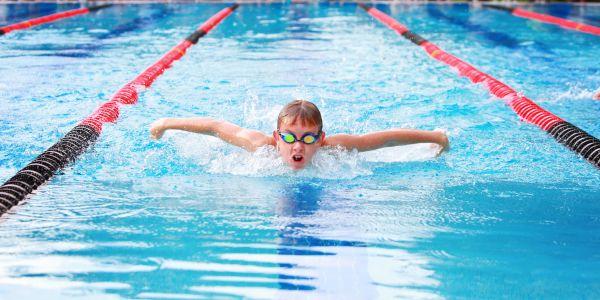How to Push Through Challenges
Have you ever wondered why some athletes succeed despite challenges and adversity while other athletes fall apart when encountering similar circumstances?
The difference between these two types of athletes is mindset. An athlete’s mindset has a profound effect on athletic achievement.
If kids’ mindsets don’t align with their goals, they risk failing to achieve their objectives.
Recently, a collegiate junior contacted us and shared his frustration with falling short of his athletic goals:
“I set some big goals this year. I want to make an NCAA cut, but I feel like quitting every time I have a poor showing in a competition. My coach has told me all season long that I can achieve the cut, but sometimes I have doubts. How can I get over the hump and achieve my goals?”
Truth is, sports kids’ ability, skillset and physiology are not the biggest obstacles. The single most crucial factor for athletic achievement is mindset.
Kids’ minds can help them overcome physical challenges and reach their goals– or prevent them from achieving their athletic potential.
What exactly is mindset and how can young athletes develop a mindset that leads to success in sports?
A child’s mindset is their overall attitude about their capabilities, capacity and ability to achieve their desired goals.
Their chosen mindset affects everything they do, including how they approach challenges, deal with adversity and train.
Unfortunately, many athletes have a limited mindset and think in black-and-white terms:
- “Since I didn’t achieve a personal best today, I will never achieve a personal best.”
- “Because I missed the cut, I will probably fall short of the cut in the next competition.”
With a limited mindset, sports kids focus on their mistakes, weaknesses and past failures and conclude they lack what it takes to succeed. Kids with limited mindsets need to change their thinking.
This requires young athletes to tweak how they see themselves, their athletic potential and their ability to overcome adversity.
Athletes can challenge limited mindsets by challenging their beliefs and asking themselves:
- “Is it true that I cannot achieve something today because I missed the mark yesterday?”
- “Have other athletes succeeded under similar circumstances?”
- “Is my potential really limited to what I did yesterday?”
Once athletes have reality-checked their beliefs, they can start forming a new reality that focuses on growth, progress and process.
Masai Russell, a hurdler at the University of Kentucky, has a long list of athletic accomplishments. Russell set the NCAA 100 meter hurdles record with a 12.36 at the 2023 SEC Outdoor Track & Field Championships.
Still, Russell has a bigger goal–the Paris 2024 Olympic Games…
Russell’s attention to her competitive mindset has been transformational.
“The biggest transition has been this last year, just how much I’ve changed my life and who I am mentally,.” she said.
“I’m understanding now that the mindset is very important as an athlete, and when you can take hold of that and capture how important your brain is towards your success, then I feel like there’s nothing that you can’t do. It’s been a transformation I’ve seen in myself.”
All athletes experience challenges and difficulties. It’s inevitable. But a positive mindset can help them overcome obstacles.
When kids have a positive competitive mindset, they have an unwavering belief that they will find a way, develop the skills and improve their technique.
They will take risks, adjust their game plans, learn from both wins and losses and adapt to adverse circumstances to achieve their athletic goals.
Instead of asking themselves, “Why do I always fall short of my goals?” they need to ask themselves, “How can I achieve my objectives?”
Related Articles on Youth Sports:
- How This Olympian Overcame Adversity After Almost Losing Both Legs
- Adversity in Young Athletes
- Help Sports Kids Grow From Adversity
*Subscribe to The Sports Psychology Podcast on iTunes
*Subscribe to The Sports Psychology Podcast on Spotify
The Composed Sports Kid

“The Composed Sports Kid” audio and workbook digital download program for young athletes and their parents or coach helps kids cope with frustration and anger in sports. Help your sports kids learn how to manage expectations and let go of mistakes so they can keep their head in the game.
The Composed Sports Kid system is really two programs in one–one program to train parents and coaches how to help their kids practice composure, and one program that teaches young athletes–ages 6 to 13–how to improve composure, let go of mistakes quickly, have more self-acceptance, and thus enjoy sports more!

